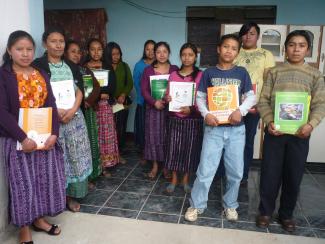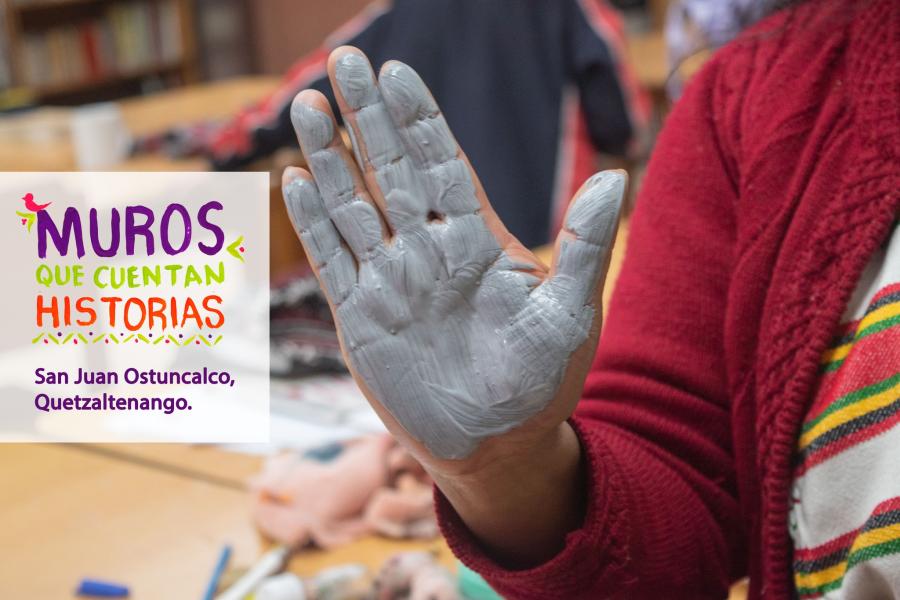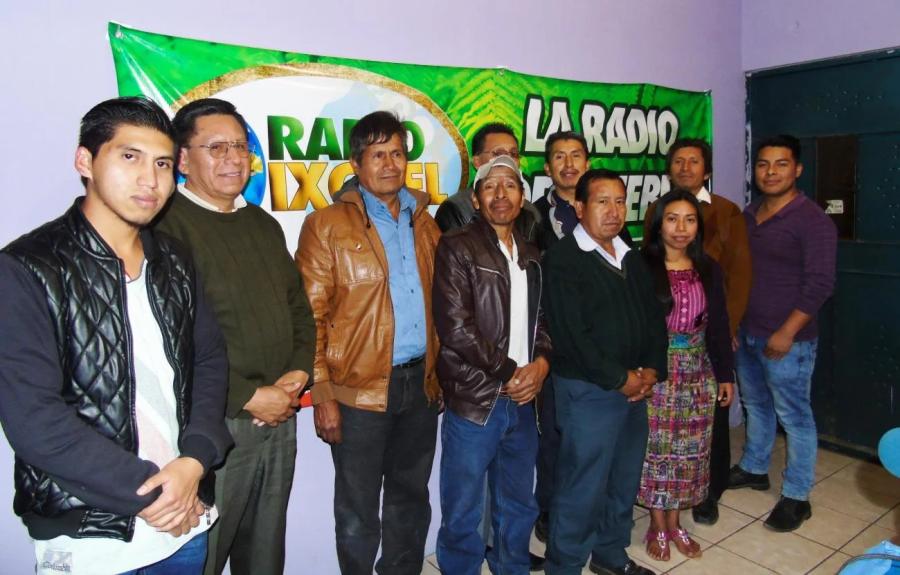
Has clic para version en Español.
Sumpango is a town in the Sacatepéquez department of Guatemala, 42 kilometers from Guatemala City. It has over 50,000 inhabitants, 80-90 percent of whom are Indigenous and whose native language is Kaqchikel. The Kaqchikel language is spoken in the central region of Guatemala, and many of its words are similar to those in the Kiche and Tzutujil Mayan languages.
Given the discrimination that they have faced in the past, the people of Sumpango have stopped speaking Kaqchikel to their children and have prohibited their children from speaking it as well. Today, Kaqchikel is spoken mostly in villages and rural areas and only by those over 50. Young people do not use it, much less small children. Kaqchikel is spoken in neighboring towns, but not in ours.
Sumpango’s community radio station, Radio Ixchel, has made great efforts for over nine years to promote and rescue the language via radio programs developed in collaboration with the Kaqchikel Linguistic Community of the Guatemalan Academy of Mayan Languages.
Radio Ixchel is collaborating with the Guatemalan Institute for Radio Education, which has instituted the study of Kaqchikel for middle school students and successfully provided [language] classes. These students have appreciated the opportunity to take up the language, especially since their parents have not been able to teach it to them.
Over the course of two years the radio station has sponsored training workshops on language revitalization for more than 40 participants, as job opportunities exist for which fluency in a Mayan language is required. The participants have expressed their appreciation for the radio station’s renewed efforts to rescue our language.
On the air at Radio Ixchel, various programs impress upon listeners the importance of teaching their children Kaqchikel. Listeners often call in to thank us for the attention we have given to the revitalization of our native language.
We have also developed programs in Kaqchikel about traditional medicine, broadcast among neighboring Kaqchikel radio stations and produced with the help of the Kaqchikel Linguistic Community, Wuqu Kawoq, and Cultural Survival.
Over the course of this year we intend to continue with these programs, in addition to implementing other teaching methods through educational public service announcements over the radio. The radio station’s Facebook page and other social media platforms may also be used for this kind of [language] lesson.
It is necessary to continuously improve since new words have been created and we must update speakers of Kaqchikel. We believe we have made progress, since many people who still speak the language feel more confident. On the street, these speakers confidently greet others or initiate conversation in our mother tongue.
There is still much to be done. Following the example of Radio Ixchel, I believe the people, individually and collectively, must put serious effort into this project. With improved funding for our projects, we can succeed in having our youth and our children speak the rich language of our culture.


